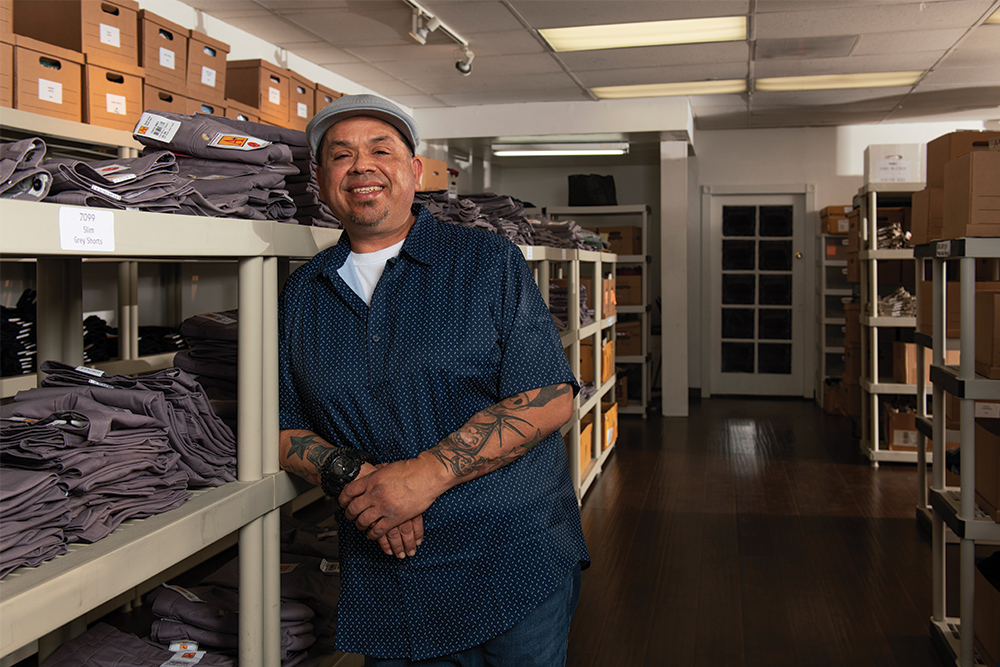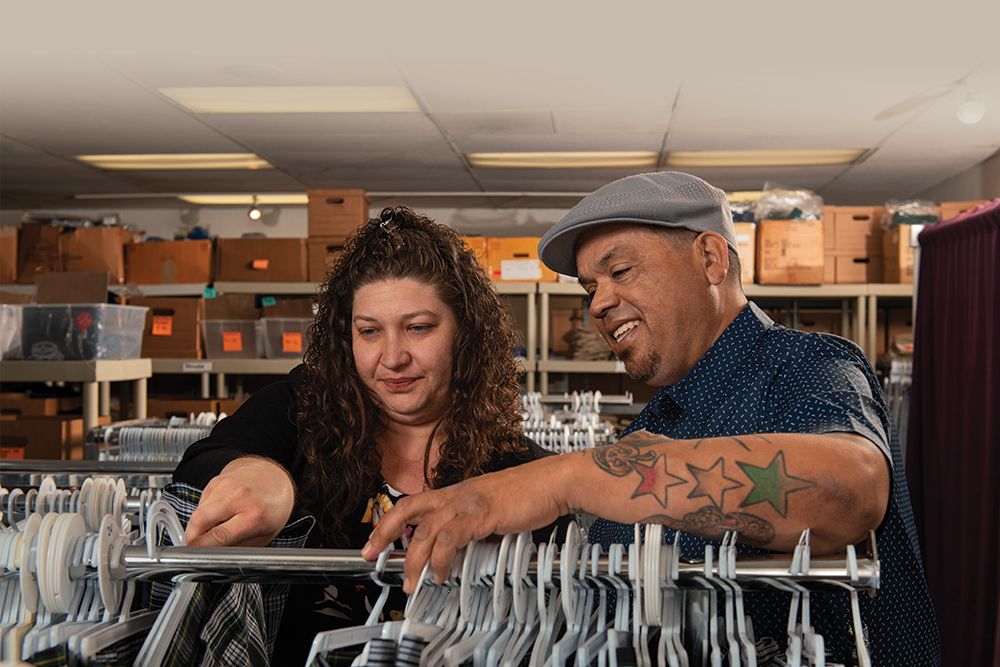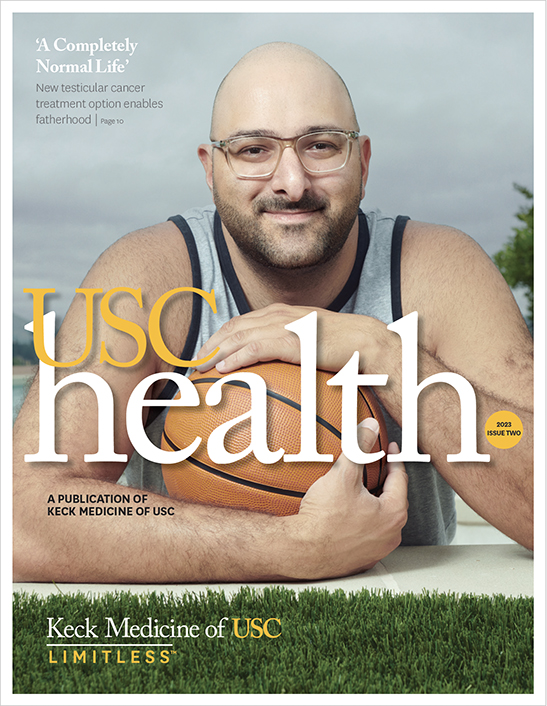
Thanks to a life-changing surgery performed by Evgeniy Kreydin, MD, of USC Urology, Ricardo Sandoval is moving on from renal disease.
Ricardo Sandoval wakes up each day by 5 a.m., brimming with energy.
After an hour-and-a-half of exercise — a three-mile walk, cardio workout and calisthenics — he makes breakfast for his two boys and takes them to school. Then, he opens the doors to his thriving school uniform business. Evenings, he makes dinner and goes for a walk or bike ride with his family.
This seemingly ordinary day is remarkable for one reason: only a short time ago, Ricardo had end-stage renal disease.
He was so weak he couldn’t climb the stairs to his house. Every night he hooked himself up to a dialysis machine, which removed waste from his blood because his kidneys could no longer do the job.
Then, a complex surgery called bladder augmentation at Keck Medicine of USC set the stage for Ricardo to receive a kidney transplant, and “my world changed completely,” he says.
‘Neurogenic’ bladder diagnosis changes patient’s outlook
The turning point came three years ago, when Ricardo met Evgeniy Kreydin, MD, a urological surgeon at Keck Medicine’s USC Urology.
Dr. Kreydin determined that Ricardo had a “neurogenic” bladder, in which a person lacks bladder control due to a brain, spinal cord or nerve condition. About 15 years earlier, Ricardo had been the victim of a gunshot to the back.
In a healthy bladder, the internal pressure stays steady as it fills.
“The bladder is elastic; as the volume goes up, the pressure doesn’t,” says Dr. Kreydin, assistant professor of clinical urology at the Keck School of Medicine of USC.
But Ricardo had a persistent “high-pressure bladder” that had lost its elasticity. He felt a constant, often painful pressure to urinate. His bladder also contracted unexpectedly, causing leakage.
Without a solution, it could jeopardize any kidney transplant.

Using bowel tissue for bladder augmentation
“Patients with neurogenic bladder didn’t have a lot of options until about 15 years ago,” Dr. Kreydin says. At that time, the drug Botox was introduced, with its ability to block chemical signals from nerves, including muscle contractions.
For many people, one injection is sufficient to decrease bladder pressure and stop leakage. From his office at USC Verdugo Hills Hospital, Dr. Kreydin administered Botox to Ricardo. But, in this case, it didn’t work. Ricardo’s only option was surgery.
USC Urology is a center of excellence for bladder reconstruction, in which a whole new bladder is created, typically for patients with bladder cancer.
“USC is also a center of excellence for bladder augmentation,” says Dr. Kreydin adds, noting that it is “a less common procedure.”
Dr. Kreydin drew a picture showing how he would use Ricardo’s own bowel tissue to expand his existing bladder and lower the pressure. Amazed, Ricardo told him, “Go for it.”
I’m blessed, so very blessed. I plan to live a long, long time.”
Ricardo Sandoval, patient, USC Urology
Fortunately, Ricardo was in shape to handle the complex procedure. A year into dialysis, he decided, “I want to be healthy.” He took charge of his disease and stuck to his renal diet.
Over a few years, he lost 120 pounds from his peak weight of 320. Ricardo had another advantage: a loving, supportive family — wife Robyn, daughters Stephanie and Cerissa, and sons Louis and Zion.
Eligibility for a new kidney after bladder surgery
With his bladder repaired, Ricardo could look forward to a new kidney.
His transplant took place in February 2021 at Keck Hospital of USC. Dr. Kreydin, a member of the USC Neurorestoration Center, is determined to help more patients like Ricardo through research.
“We want to get the spinal cord working again so the bladder starts working again, too,” he says.
In August 2019, in a seven-hour operation, Dr. Kreydin enlarged Ricardo’s bladder. He then built a channel from Ricardo’s intestinal tissue to allow him to empty his bladder from his abdomen via a catheter, bypassing his damaged urethra.
“I’m blessed, so very blessed,” says Ricardo, who turns 48 this year. “I plan to live a long, long time.”
Topics


